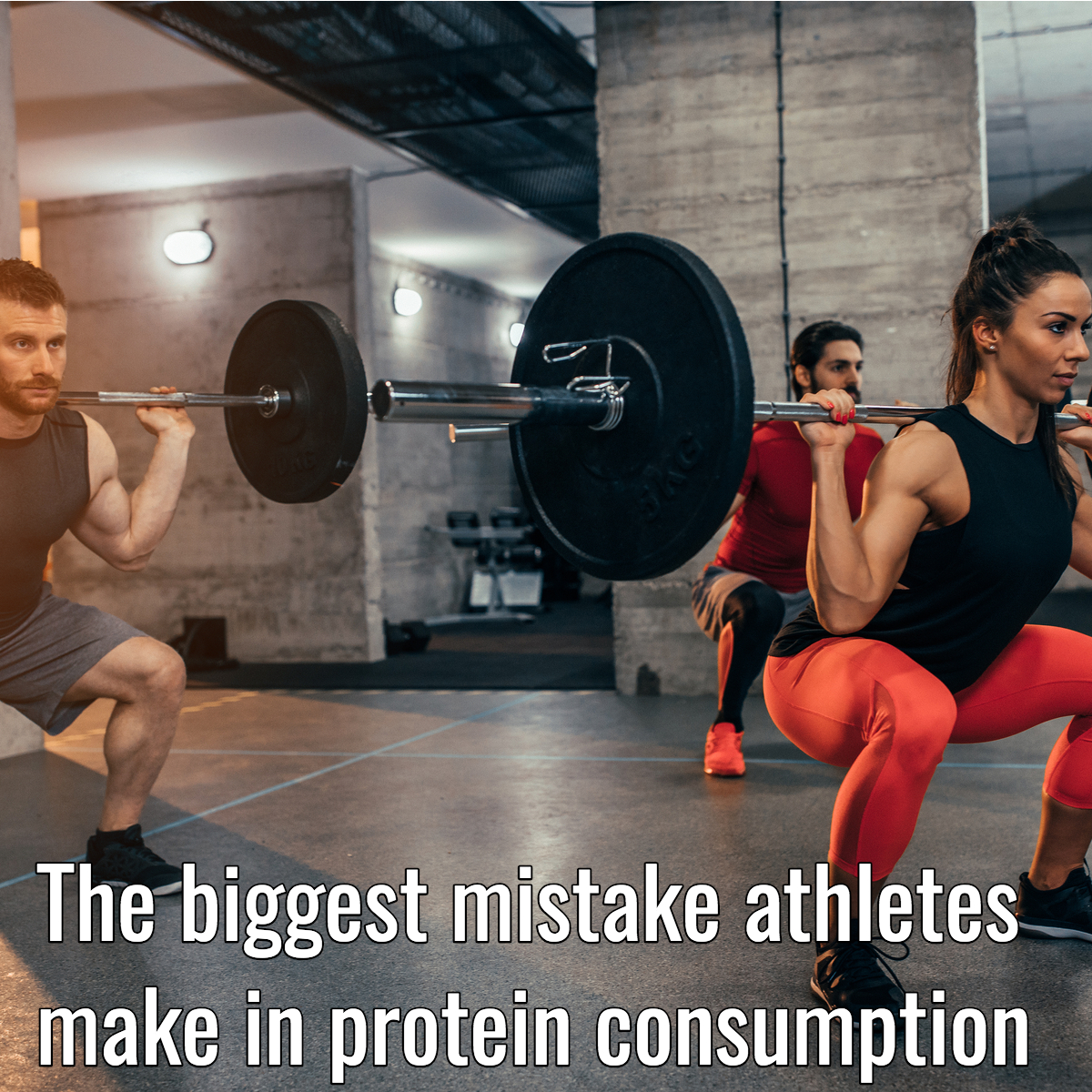The biggest mistake athletes make in protein consumption
/Do you know what is the biggest mistake both amateur and professional athletes make when it comes to their protein intake?
No, it’s NOT “how much protein” to consume (most are often wrong about that too, but that’s a topic for another post).
No, it’s NOT “timing” of protein intake (but most make mistakes in that too).
No, it’s NOT the “type” of protein (whey, beef, eggs, milk, soy, etc), although there is a lot of confusion among athletes about that too.
In fact, the biggest mistake they make is “how much protein to consume PER meal”!
What very few people know (including many sports nutritionists unfortunately) is that there is an upper limit to how much protein your body can absorb from a single meal for MPS (Muscle Protein Synthesis).
After you complete a training session which stimulates muscle growth, the rate at which your muscles recover and grow is determined by the MPS, which in itself is impacted by your protein consumption.
So is consuming a protein shake with 30g of protein going to trigger a higher MPS, a faster and better recovery compared to a shake with 20g of protein?
The short answer is: NO!
A 2009 study from the University of Kentucky involving active young adults demonstrated that a piece of beef containing 90g of protein did NOT trigger a higher MPS compared to a piece of beef containing only 30g.
A 125g piece of beef tenderloin contains 30g of protein. To get 90g of protein, you would need a piece of 375g.
So if you eat a regular piece of beef tenderloin steak (let’s say 300g), you’re getting more than 60g of protein. If you can only use 30g, what happens to the rest?
Well: the rest is either burned up as energy during the digestion process, or converted into glucose (and subsequently fat if not burned) through a process called gluconeogenesis.
Still not convinced? How about this:
The purest form of protein is Amino Acids. In fact, a subset of Amino Acids called EAA (Essential Amino Acids) are the most critical for MPS in humans. They are called “essential” because the human body cannot manufacture them, they need to be obtained from food.
Amino Acids consists of EAA and BCAA (branch chain amino acids), but BCAA are not “essential” and our bodies can manufacture them.
In fact, taking BCAAs on their own do NOT trigger MPS, which is why I cringe when I see people taking BCAAs during or post workouts!
So if you want the “perfect” protein to trigger MPS post workout, you can take EAA (or full spectrum Amino Acids which contains both EAA and BCAA).
But here’s the kicker: a 2005 study from the University of Dundee in Scotland demonstrated that 20g of EAA does NOT trigger any additional MPS compared to just 10g! Same story…
So the bottom line is this: if your goal is to maximize muscle synthesis post workout, and once you know how much protein you need to consume in total for the day (I’ll write a post soon about that), split your doses so that you consume no more than 30g per meal, otherwise you’re wasting money.
Are there exceptions and caveats? Of course there are:
Bioavailability
Not all protein is created equal. A cup of chickpeas contains 39g of protein, while 100g piece of beef tenderloin (a third of a normal size piece) contains only 24g.
However, the percentage of the protein the human digestive system can extract is MUCH lower for chickpeas compared to the tenderloin. In fact, you’ll need to consume around 40% more chickpeas (gram for gram) compared to a piece of beef tenderloin to get the same amount of bioavailable protein.
So while a cup of chickpeas contained 39g of protein, it only contains around 25g of bioavailable protein.
This is the case for most vegan-based protein sources, with the exception of soy, which has high bioavailability but comes with its own set of problems (related to hormonal impact).
Also remember that unlike the case with animal proteins, veg-based proteins tend to come with a high amount of carbs for the most part (beans, chickpeas, lentils, etc). So be careful: if you’re eating more to counteract the effect of the lower protein bioavailability, this means that you’re consuming a lot more carbs, so manage accordingly.
Also: digestive enzymes can help you improve the bioavailability of veg-based protein sources.



